Filmmaker Kenneth Scicluna originally wanted to work in computer animation but finally found his calling in film. Veronica Stivala joins him on his journey so far, which despite being rather distressing at times, is also one that brings with it some rewards.
Columbia University is one of the best film schools in the world. Number five on the Hollywood Reporter’s rankings and with an acceptance rate of just 7% according to the Columbia Spectator, getting in is no mean feat. Filmmaker Kenneth Scicluna did, twice. Times were different then and, arts scholarships were non-existent. As a result, Kenneth had to renounce both times because he could not afford the substantial fees. Instead he turned to practical filmmaking, and so his journey began. Since then, he has become a member of the European Film Academy, had his films screened at some 70 festivals around the world, and has been named Best Local Director at the 2011 Malta Short Film Festival for Daqqet ix-Xita, a film which also received the Best Cinematography Award.
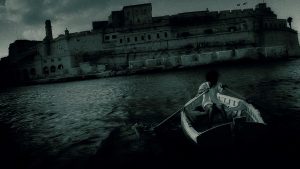
Photo by David Pisani, Neville Attard & Ken Scicluna
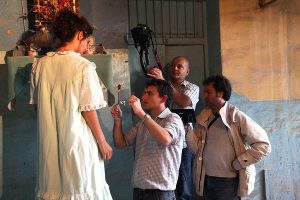
Photo by Max Vetter
So what attracted him to film in the first place? ‘The glamour,’ deadpans Kenneth. He is indeed a witty man. He is also the only person—so far—to answer my emails with quotes from poetry, lightening the tone of what could easily become run of the mill exchanges. ‘I think it’s the length of the process, perversely,’ he confides on a more serious note. ‘As much as it can be a pain, there’s attraction in the method of conceiving a thought and turning it into a story, and breaking it down again, and then building all the happenings and voices in a script, and then re-shaping them when filming, and yet again when editing, and stringing all the pieces together, and finding that it somehow works. It is a very painful process that is so rewarding in the long run, that it somehow justifies the means, ruinous at times, to get there.’
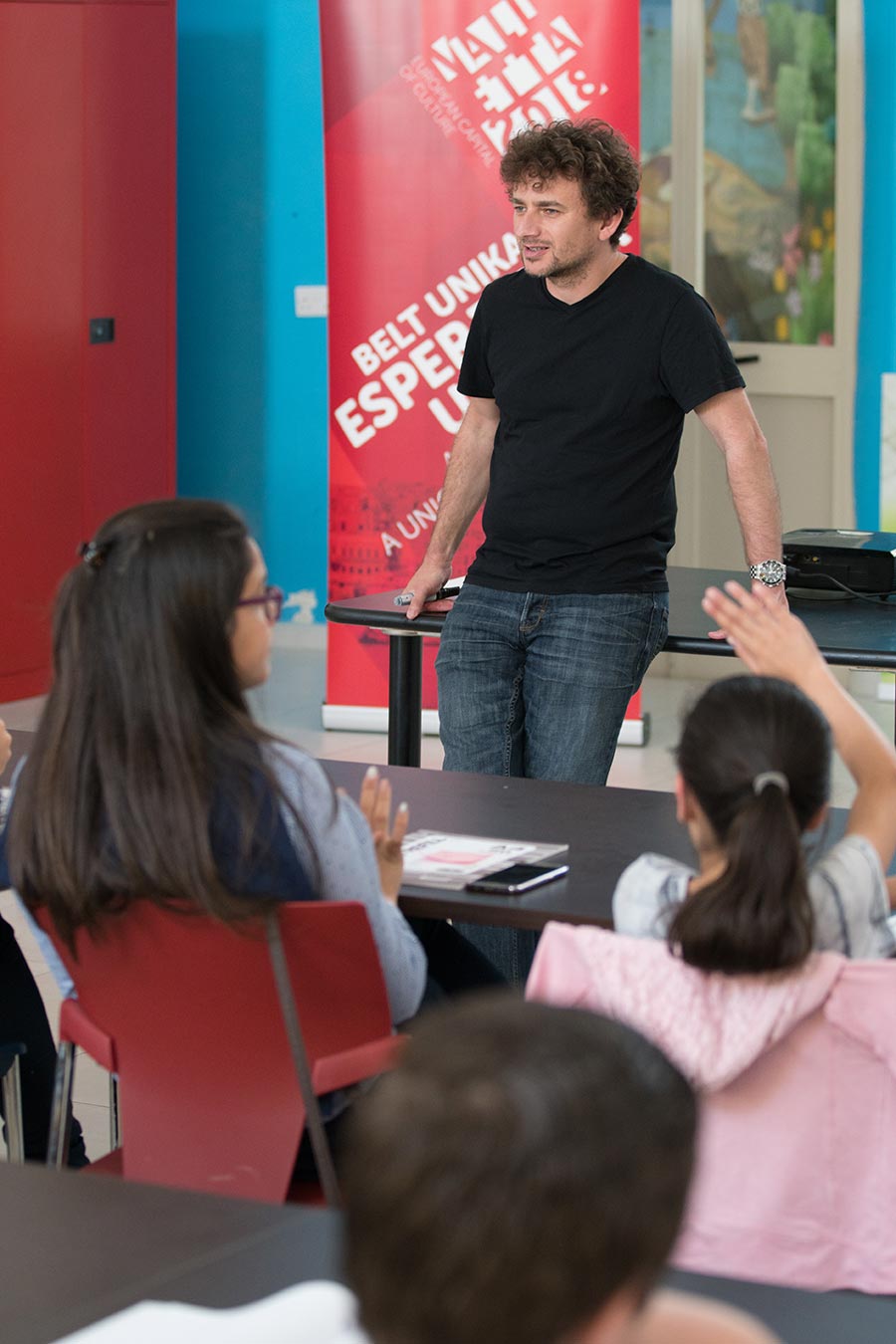
Photo by Matthew Muscat-Drago
Interestingly Kenneth, now 42, originally wished to work in computer animation. Having studied computer science at sixth form, he moved on to the only related course offered at the University of Malta (UM) at the time: computer science and mathematics. A year later, he dropped out and switched to communication studies and archaeology, finally settling on communication studies and sociology some time after. There were several catalysts for this change, one of them being the discovery of two books at the library: On Directing Film, by David Mamet, and Cinematography, by Kris Malkiewicz. He reflects how ‘although knowledge of sociology has served me well in my work, to an extent, in hindsight, English would have been a much better option’. Even with these ‘missteps’, through UM lecturer Louiselle Vassallo, he signed on as a production assistant on Dust (1996), produced by the late Sonny Monte and directed by his son Gratian. Looking back, Kenneth remembers how the experience was ‘formative and informative. A few friendships formed on it have also lasted.’
Film can leave a mark, even if small, on the way people think, feel, and see the world. It is a risk, hopefully a calculated one.
From there, Kenneth started working on foreign films, all the while developing his own. He has a long list of credits to his name: Genesis (2000—written by Jean Pierre Magro), a film about a group of young people finding their way in the world, was the first Maltese feature film in decades to be invited to festivals abroad. Central Express (2003) saw him directing two short documentaries for Rai 3, one focusing on Caravaggio’s sojourn in Malta, the other a meandering journey into the Gozitan genius loci. The Isle (2004—co-written with Jean Pierre Magro) for Zentropa’s Visions of Europe tells the story of a foreigner who takes pictures of dilapidated buildings, inspired by Böcklin’s cycle of paintings on the Isle of the Dead. With Marie Briguglio, he joined forces with ten other European directors for Europe’s Old New Faces, a project supported by Looks Film+TV for Arte, where together they drew a picture of their country on the basis of national monuments. Then came Daqqet ix-Xita (2011), the first film co-funded by the Malta Film Fund, a disturbing yet oddly moving account of a young man’s futile attempts to escape his mundane life. Finally, there’s Eleġija (2014), the first in a series of films inspired by Maltese poetry for Inizjamed in conjunction with the Valletta 2018 Foundation, which drew inspiration from Doreen Micallef’s writings.
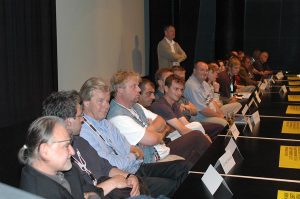
Speaking about what he thinks his strong points are, Kenneth finds he lives ‘best in dark corners,’ admitting his least successful attempt was in colour. ‘I don’t think I can do comedy,’ he declares, noting how he likes narratives built around ‘gaps, holes’. Elaborating further on this, he explains: ‘I relish moments of ellipsis. My only issue,’ he contemplates, ‘is that sometimes the gaps in my films can be a bit too wide’.
Kenneth does not mince his words when asked what filmmaking means to him: ‘A lot of uncertainty, and a lot of effort for little return. That is the stark truth. It’s going out on a rough sea in a small boat.’ But, he continues, ‘what keeps you rowing, sometimes, is the belief that beyond the next crest lies something important: a concept, a happening, a face. And sometimes, you do find that face, that fleeting thought, that glimpse of a truth, and when you do, the seas calm down for a while, and it all seems worthwhile, and worth pursuing again. But there’s also a lot of aimlessly rowing about, and getting wet.’
Indeed, a career in film is not an easy one. And a successful career in the industry means you must be ready to take risks and to believe in yourself. To this comment, humble Kenneth answers that, ‘more than a staunch belief in myself—although there were a few surprising moments, like winning a mentorship award of late with a German-Iranian producer, and other such moments along the years, which suggested I just might have interesting goods to sell—it’s a belief in film itself. A belief that a film can leave a mark, even if small, on the way people think, feel, and see the world. It is a risk, hopefully a calculated one.’
Kenneth warns that anyone wanting to get into a similar career in film ought not to, ‘unless you’re prepared to face pain. A lot of pain. And financial misery.
Did Kenneth ever have any down moments, any times when he felt like giving up? ‘Yes,’ he says, surprisingly adding how he tries to give up daily. But, thankfully, what keeps him from pulling the plug all the way out is a comment from his wife, feedback from a friend, and ‘the dogged stubbornness that somehow, someone, somewhere will find [his] work interesting’. For those thinking of starting a career in film, Kenneth warns them not to, ‘unless you’re prepared to face pain. A lot of pain. And financial misery.’ For those stubborn ones out there still reading, Kenneth advocates to start with a solid education. ‘Get a first degree in Communication Studies with a secondary area having a strong literary component. Further your theoretical studies in film at MA level—the MA in Film Studies at the UM is excellent in this respect, and then move on to a practical film school abroad.’ Currently, Kenneth is reading for the MA in Film Studies himself.
To keep the wheels turning, Kenneth also lectures part-time with the Faculty of Media and Knowledge Sciences (UM) on the Development of Film Language with his mentor, Prof. Saviour Catania, as well as on Applied Media Aesthetics and Film Analysis. Beyond the bread and butter, Kenneth is also working on a wonderful project called Tafxnaf where he shares his film-making experience with 12 and 13-year-olds. ‘It has certainly been very hard work and the cause for many a sleepless night, but seeing the children take an active role in turning stories, which they themselves have written, into short films is a very rewarding process,’ he confides.
His latest project is a film adaptation he is working on with award-winning writer Clare Azzopardi—a process he is greatly enjoying, not least because of the sheer pleasure of working with Azzopardi.
Kenneth leads a busy life, but I end our interview by asking what he does when not working. To this, his reply is: ‘Parenting. Or trying to, haplessly.’

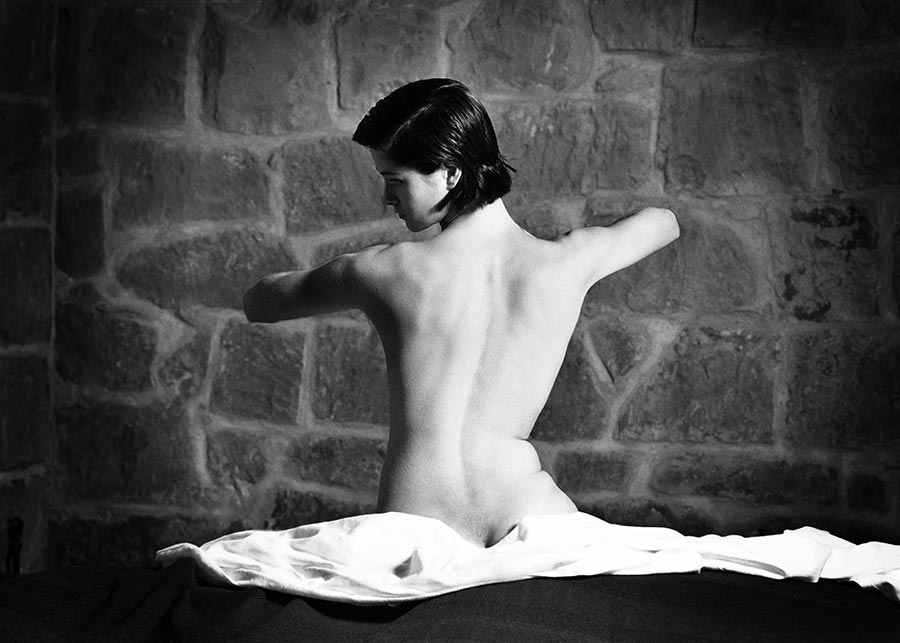



Comments are closed for this article!